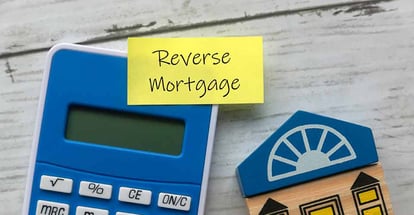How to Protect Yourself from Title Theft
The biggest investment of most Americans is the home. Even though that is the reality for most Americans, fraud can still happen to you, and how would you handle it then?
Title theft is a common occurrence in the United States. Title theft is a crime that occurs when someone steals your property title and transfers it to themselves, for example, by forging your signature.
To protect yourself from title theft, you should do the following:
Monitor your bills
Missing bills might be the first indicator that someone has stolen your identity. It's essential to contact all of your associated companies, whether a mortgage company, credit card company, or cell phone provider, informing them if you're not receiving any bill or payment from them because something could have gone wrong on their end.
Even if it's not a case of title theft, following up could save you the headache regardless and prevent you from finding yourself delinquent on a payment which could eventually lead to foreclosure!
Track Your Credit Report
Checking your credit report is an essential and timely task. You need to make sure that everything is accurate and, if required, you can dispute errors immediately. You should check it once a year at the very least. And you should also check it once you have had suspicions that could be tied to fraudulent activity. Checking your credit report can reveal whether you've been a victim of title fraud.
There are a lot of credit monitoring companies out there. If you have experienced identity theft before, it becomes more critical to confirm whether or not your identity has been stolen again. This service would also be beneficial if you want extra protection from potential scammers when applying for new credit accounts or loans.
Get Title Insurance
By using a title company, you can rest assured that all of the paperwork relating to the sale, ownership, and transfer of your property will be completed correctly and thoroughly so that you're protected from any potential claims, liens, or title theft. Best of all, you don't have to worry about filing any paperwork yourself - your property is in good hands!
When purchasing a home, you often pay title insurance as part of your closing costs. Your mortgage company requires the lender's title to confirm that the title has been cleared for sale. After buying a house, you need owner's title insurance to protect you. After you purchase the property, it will protect you from future liens or claims.

Enlist Title Protection Services
Title protection services have been questioned lately, given that they charge a fee for fundamentally free services. If you'd like, you can check the title status of your property online yourself, or you can register for a free service that sends title notifications by text message.
You might be covered in this situation if you have title insurance. In the absence of that, you might consider spending $15 a month on a service that continually monitors your records.
Beware: There could be scammers pretending to be title protection companies. Increasingly, scammers are exploiting people interested in securing their titles. Take your time and don't make a whim decision. It could be a scam if someone contacts you or emails you to convince you to sign up for title protection.
Put locks on all doors and windows.
If you leave the documents or paperwork relating to your title deed and ownership in an easily accessible place when you're not there, it could be stolen or tampered with by intruders who break into your property. Keep all essential papers in a secure location at work or at another location that's outside of your immediate home.
It'll be easier for the police to return stolen property if you can provide them with all of your identity papers and proof of ownership at the same time. You don't necessarily need to keep them hidden, but it never hurts to keep them well protected if there's ever a problem with any papers.
Deed restriction
A deed restriction statement is a way of restricting any changes on a certain piece of land. What kinds of restrictions does the statement say? Well, it will tell you what can be done to your land. This can include any number of things regarding the previous deed holder and their property.
Things like: property ownership, specifying what sorts of buildings or materials you can use when constructing, protecting your trees from being cut down, fencing off areas, and so on. Having such statements in place makes your property less attractive for thieves hoping to walk away with an expensive property.
Thank you for reading our article on protecting your home from title theft. We hope that we can provide you with some helpful information that you can use to protect your home and your family. If you have any questions or about title theft or how to protect your home, please get in touch with us anytime!
With over 50 years of mortgage industry experience, we are here to help you achieve the American dream of owning a home. We strive to provide the best education before, during, and after you buy a home. Our advice is based on experience with Phil Ganz and Team closing over One billion dollars and helping countless families.

About Author - Phil Ganz
Phil Ganz has over 20+ years of experience in the residential financing space. With over a billion dollars of funded loans, Phil helps homebuyers configure the perfect mortgage plan. Whether it's your first home, a complex multiple-property purchase, or anything in between, Phil has the experience to help you achieve your goals.


 By
By  Edited by
Edited by 






